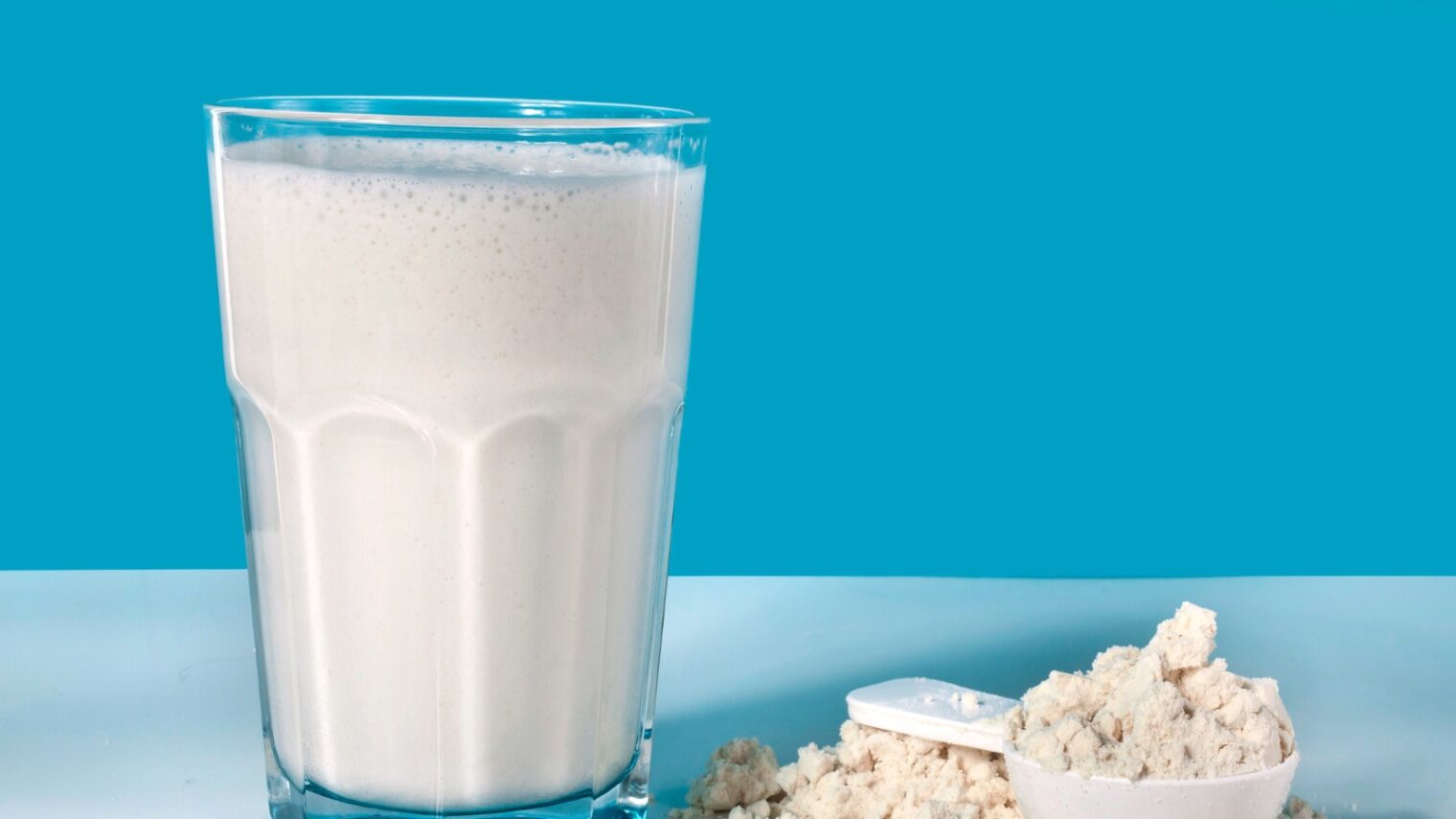Supermarkets could soon be selling yogurts, milkshake powders and other products offering relief to the millions of people who have Crohn’s disease or colitis.
An Israeli startup is preparing for clinical trials of a natural supplement derived from cow milk that will reduce inflammation – and reduce patients’ reliance on prescription medication.
Scientists now know that mothers’ milk contains exosomes, tiny capsules of microRNA — the molecules that regulate protein production in their bodies – that combat inflammation and other symptoms associated with inflammatory bowel disease (IBD) such as Crohn’s and colitis.
Extracting those exosomes from human milk clearly wouldn’t be practical as a commercial venture, but the exosomes in cows’ milk are remarkably similar.
And Exosomm, a biotech startup, has developed a unique method of extracting those exosomes and harnessing their healing powers by adding them as a powder to food.
“There are ingredients in all mammals’ milk – whether it’s a human mother and her newborn baby, or a cow and her calf – that make the cells of the offspring function better,” says Netta Granot, the company’s CEO.
“We are basically isolating those ingredients from the milk very gently and naturally so we can keep their bioactivity, and concentrating them, creating an ingredient that can be added into foods. It could be yogurt, a milkshake powder or any other dairy product.”
Food as medicine
Exosomm was founded by researchers from the Pediatric Gastroenterology Center at Hadassah University Medical Center in Jerusalem. The company aims to be the first in the world to sell food products enhanced with milk exosomes.

Milk-derived exosomes (MDEs) will push the boundaries of “food as a medicine,” such as the addition of probiotics to yogurts, folic acid to wheat flour or vitamin D to margarine.
The technology for extracting exosomes to treat Crohn’s and colitis could now be adapted for a whole range of other inflammatory conditions, says Granot, from Type 2 diabetes and asthma to lung and cardiovascular diseases.
But the company’s primary challenge, for the time being, is IBD. Researchers initially fed the MDEs to mice with gastric inflammations and found their symptoms were significantly reduced.
Typical symptoms of inflammation in the gut were reduced by 90 percent in mice fed MDEs, and there was a 70% reduction in the genes that cause autoimmune excessive inflammation.
“Essentially, our findings indicate that milk exosomes have the potential to naturally and safely mitigate inflammation in the human body, significantly enhancing the quality of life for many individuals,” says Granot.
“This level of effective reduction of inflammation predicts a dramatic change for the better for Crohn’s and colitis patients without negative side effects,” she says.
Clinical trial coming
The next step will be clinical trials, which will be led by Prof. Shimon Reif, a cofounder of Exosomm and chief of pediatrics at Hadassah, to ensure the exosomes are safe for human consumption.
“The initial clinical trial will engage approximately 30 healthy individuals and will be conducted in collaboration with Hadassah Medical Center in Jerusalem. The product will be taken in the form of powder to dissolve in water,” says Granot.
The MDEs they use will be isolated from whey, a byproduct of the cheese-making process that is naturally extracted after the milk has been curdled and strained.
Through a strategic partnership with Tnuva, the biggest food company in Israel, the exosomes will be extracted from dairy milk processed in Tnuva plants.

In general, exosomes travel through the bloodstream, delivering instructions to cells on how to repair tissues, regulate the immune system, and maintain overall health. Exosomm’s MDEs have an outer membrane that can withstand high acidity in the intestinal tract, so the message they carry remains intact until it reaches its destination.
“The capsules have a unique mechanism, protecting their precious cargo of sensitive proteins and microRNAs until they reach the gut, at which point they are activated,” says Granot.
A new era?
Currently, patients with IBD are often prescribed steroids or biologics, which are derived from living cells and cultured in a lab.
Both types of medication can be effective, but with notable drawbacks.
They can suppress the immune system and cause gastrointestinal issues, including nausea, diarrhea and stomach cramps.
They can also compromise bone health (osteoporosis), and lead to a series of other side effects. And in as many as 40% of patients, these medications become less effective over time.
Exosomm says its product – which is a food supplement, not a medicine – may allow IBD patients to keep symptoms at bay in times of remission without the need for prescription drugs.
Granot says what her company has developed is unique, and at the forefront of “the new era of therapeutic food.”
It is “an ingredient that is anti-inflammatory, but that is nutritional rather than pharmacological.”
Exosomm hopes to make the product – also called Exosomm – available to customers early in 2025.
For more information, click here.















